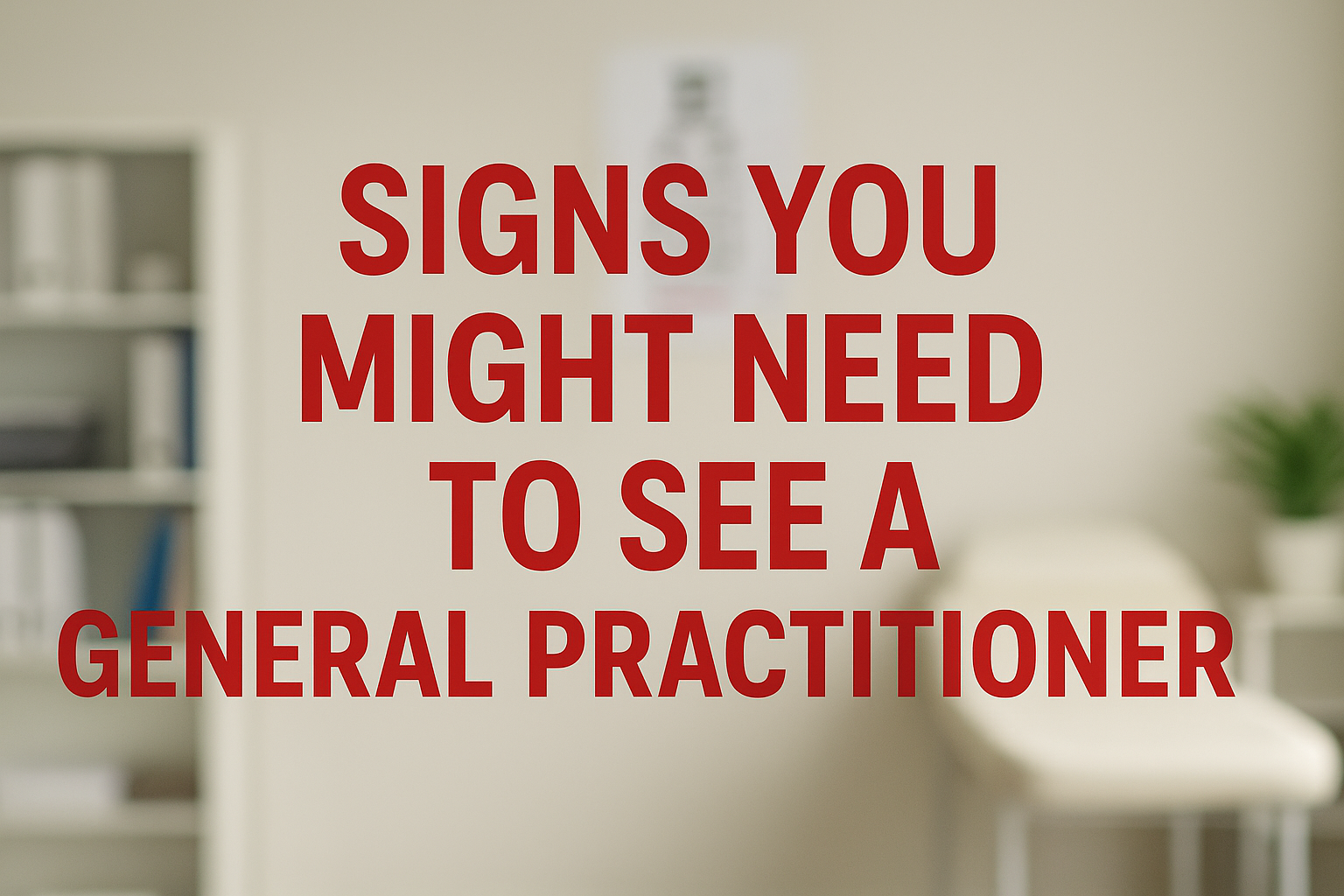
-
Posted By admin
-
-
Comments 0
Signs You Might Need to See a General Practitioner
Knowing when to see a general practitioner can make a big difference in managing your health before problems worsen. Many individuals in Ajman and the UAE delay visiting a GP until symptoms become severe, missing the benefits of early detection and treatment.
In this blog, we’ll explore the common signs that indicate it’s time to book an appointment with a general practitioner, the role GPs play in long-term health, and how regular visits can prevent chronic conditions from escalating.
The Role of a General Practitioner
A general practitioner (GP) is often your first point of contact in the healthcare system. They offer preventive care, diagnose illnesses, and refer patients to specialists when needed. From managing high blood pressure and diabetes to addressing sudden fevers or unusual fatigue, GPs handle a wide spectrum of health issues.
Common Signs You Should Not Ignore
1. Persistent Fatigue or Weakness
If you’re constantly feeling tired despite proper sleep and nutrition, it could be a sign of an underlying health issue such as anemia, thyroid disorders, or even early-stage diabetes.
2. Sudden Weight Changes
Unexplained weight gain or loss may be related to hormonal imbalances or metabolic disorders. A general practitioner can help investigate and rule out any serious causes.
3. Frequent Headaches or Migraines
Recurring headaches, especially if they’re getting worse, may need a medical assessment. GPs can determine whether it’s stress-related or linked to more serious neurological conditions.
4. Ongoing Fever or Infections
If you keep getting sick or have a lingering fever, it may signal an immune system issue. Visiting a GP ensures timely intervention before it escalates.
When to See a General Practitioner Based on Symptoms
|
Symptom |
Possible Cause |
Recommended Action |
|
Persistent cough (over 2 weeks) |
Respiratory infection, allergies |
Visit GP for diagnosis & chest exam |
|
Unusual rashes or skin changes |
Allergic reaction, skin infection |
GP may prescribe topical or oral treatment |
|
Trouble sleeping |
Stress, anxiety, hormonal issues |
GP can assess and refer if necessary |
|
Chest discomfort |
Heart or gastrointestinal issues |
Immediate checkup recommended |
|
Frequent urination |
Diabetes, UTI |
GP can order tests to confirm cause |
Importance of Regular Checkups
Even when you feel fine, scheduling regular appointments with a GP is crucial—especially in regions like the UAE where lifestyle-related diseases such as diabetes and hypertension are prevalent. According to the International Diabetes Federation, nearly 1 in 5 people in the UAE live with diabetes (IDF UAE Stats). Regular screenings with your GP can help detect these conditions early.
When to See a General Practitioner for Preventive Care
Preventive care is just as important as treatment. If you have a family history of chronic illnesses or are over the age of 40, annual wellness checks are strongly advised.
Here are some key preventive services GPs provide:
- Blood pressure monitoring
- Cholesterol and blood sugar tests
- Cancer screening referrals
- Lifestyle counseling (diet, smoking, exercise)
You may also be referred for Doctor consultation with blood test Ajman services if needed, particularly when symptoms are unclear or further lab testing is required.
Emotional and Mental Health Concerns
Mental health symptoms such as persistent sadness, anxiety, or mood swings are valid reasons to visit a GP. They can offer initial support, prescribe medications if appropriate, or guide you toward a mental health specialist.
“Mental health is just as important as physical health.” — World Health Organization
Key Takeaways
- Don’t wait for severe symptoms—early intervention is key.
- GPs offer broad care from physical exams to mental health support.
- Schedule a visit if you notice unusual or persistent symptoms.
- Preventive screenings can help avoid serious health conditions.
- Knowing when to see a general practitioner empowers you to take control of your health.
FAQs
1. How often should I see a general practitioner?
Adults should visit a GP at least once a year for a routine checkup, even if they’re not experiencing symptoms.
2. Is it necessary to see a GP before consulting a specialist?
In many cases, yes. GPs evaluate your symptoms and provide referrals to specialists if necessary.
3. Can a general practitioner diagnose chronic illnesses?
Yes, GPs can detect and manage conditions like diabetes, hypertension, asthma, and more.
4. What should I bring to my first GP visit?
Carry any previous medical records, a list of symptoms, medications, and questions you may have.
5. When to see a general practitioner for flu symptoms?
If your flu symptoms persist beyond 3–5 days, worsen, or include chest pain or breathing issues, it’s time to consult a GP.
Final Note:
Don’t underestimate minor symptoms—they could be signs of more serious conditions. If you’re in Ajman or nearby areas, a visit to your local GP might be the preventive step your health needs today.
Let me know if you’d like this uploaded as a Word or HTML file or need versions for social sharing.


